The CCP invests considerable funds to revamp China’s revolutionary heritage, using it to indoctrinate people and force them to worship its leaders.
by Deng Jie
Supported by the central government’s five-year (2016-2020) plan to develop the national “red tourism,” theme parks are being opened across China in sites and locations associated with the country’s communist revolution, spanning nearly 30 years from 1921 to 1949. Created to “rekindle the long-lost sense of class struggle and proletariat principles,” these parks are used to indoctrinate the young generation and enforce communist ideology on all its citizens. As President Xi Jinping proclaimed in a speech in 2016, “only by experiencing the hardships of the revolutionary era can people truly receive an education” and be given a “spiritual red baptism.”
In Renju village, administered by Pingyuan county in Guangdong Province’s prefecture-level city of Meizhou, its concrete streets, renovated with the money raised by villagers, were recently destroyed and paved with cobblestone to create the atmosphere of the 1930s, when the Red Army was stationed there. According to a local source, the order to restore all roads traveled by the Red Army to their original appearance came “as a political task.”
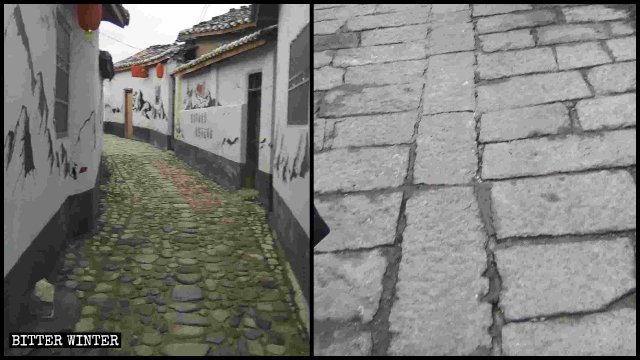
Tens of millions of RMB have been spent since 2018 to convert Renju into a “red village.” Its streets are now dotted with CCP emblems and images celebrating the Red Army, and the houses where its soldiers have stayed are elaborately decorated. Old revolutionary slogans, such as “Down with imperialism,” and new ones initiated by Xi Jinping, like “Inherit the red gene,” are displayed for everyone to see.
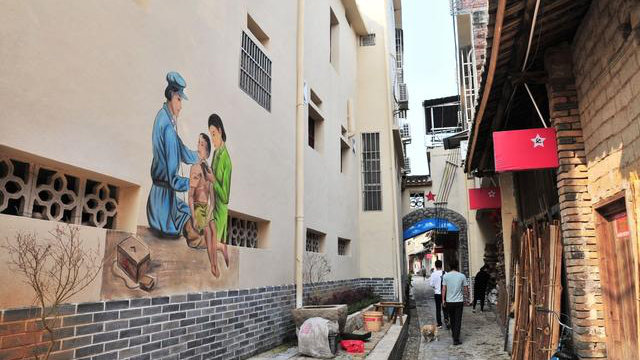
According to an April 17 report by Meizhou Daily, the official municipality newspaper, this village conversion had come about after “the local government listened to the opinions of the masses” and obtained their “unanimous agreement and support.” But villagers see it differently.
“This road used to be easy to walk on, but now children fall, and the elderly get injured if they are a little bit careless,” an elderly villager complained. “It’s difficult to ride bicycles and motorcycles or clean it.”
“The government repaved our roads without discussing with us,” another villager said. He criticized Xi Jinping for spending money to celebrate the Communist Party but doing nothing for the people.
The Lanshan’gen-Yuncheng Impression Scenic Area in Yuanjia village, administered by Dongguo town in the Yanhu district of the prefecture-level city of Yuncheng in the northern province of Shanxi, is also dedicated to China’s revolutionary history. It houses a Mao Zedong statue and an incense burner for people to worship the “great leader.” Red songs, like “Without the Communist Party, There Would Be No New China,” play on the loop throughout the day. National flags hang at shops’ entrances. Most venues have a Mao Zedong portrait displayed as well, and employees wear badges with Chairman Mao’s images. A slogan “Cherish the memory of Chairman Mao Zedong; support Present Xi Jinping” promotes a stage play dedicated to the two leaders.
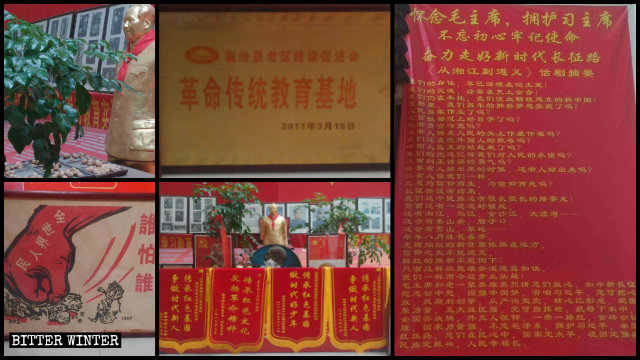
According to several shop assistants, the venues’ managers were demanded to arrange spaces according to the Mao-era style. The site’s administration even provided all statues and portraits of Mao Zedong. All employees must swear allegiance to the CCP in front of the Mao Zedong statue every Monday morning.
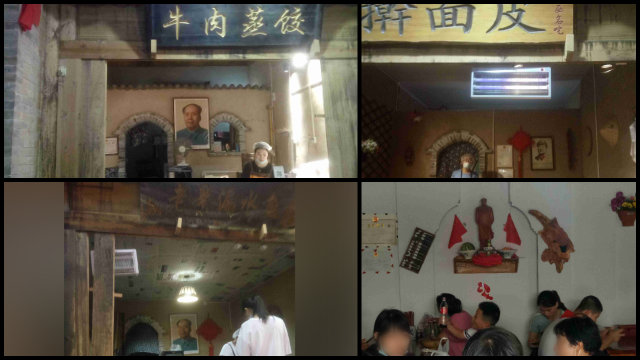
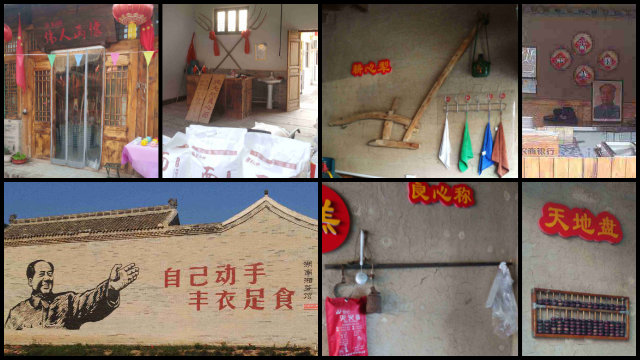
“The government builds red scenic areas mainly to organize study trips for kindergarten and primary school students to instill in them the love for the country and the Party,” a scenic area staff member told Bitter Winter.
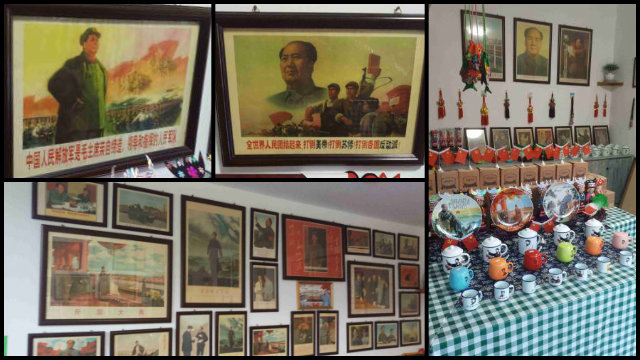
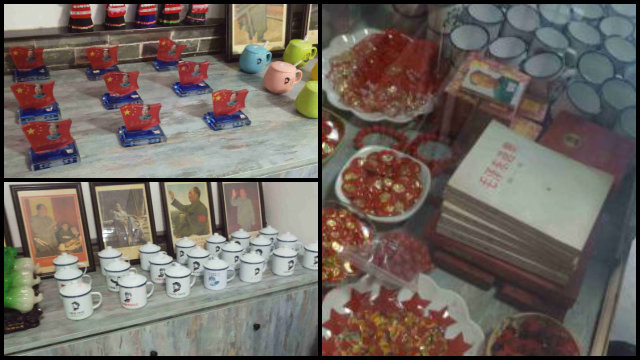
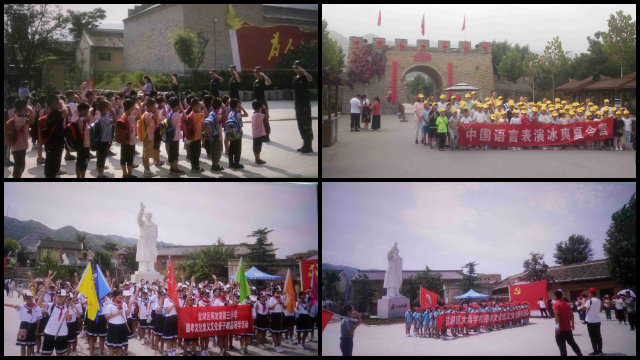
A “Party Construction Theme Park” in Zibo city’s Gaoxin district in the eastern province of Shandong was opened in June. With over ten million RMB (about $ 1.4 million) of investments, it features a Mao Zedong statue, the Oath to the Party Square, and other revolutionary attractions.
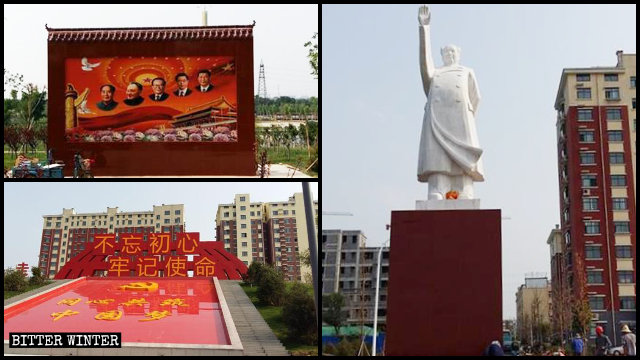
On the opening day, officials convened residents to the Chairman Mao statue to burn incense and joss paper or “ghost money”—an ancient Chinese tradition to ensure that the deceased ancestors have a prosperous afterlife.
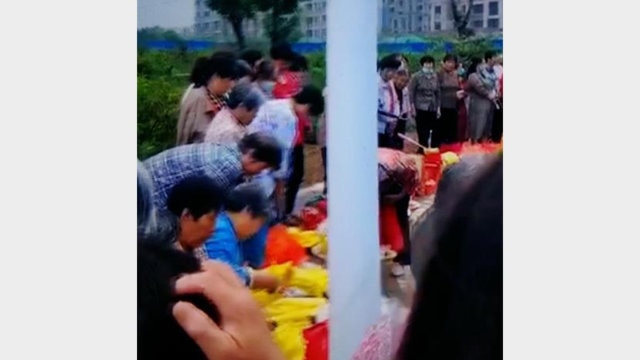
The publicity department of the CCP Committee of Fuzhou, the capital of the southeastern province of Fujian, has launched a special program to promote the city’s revolutionary sites by developing red tourism routes, issuing specialized guidebooks, and training personnel to lead guided tours.
The city’s Yushan scenic area had several red propaganda projects added last year, including a red education base opened in a converted ancestral temple, a stage for lectures on patriotism, and a plaque engraved with the text of the oath to the Party.
“Our aim is to ensure that people support the Communist Party,” a staff member at the Yushan scenic area explained. “Only when everyone obeys the Party can the society be harmonious.”
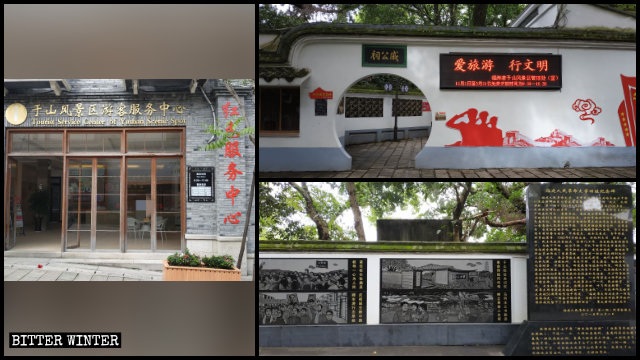
Source: Bitter Winter












